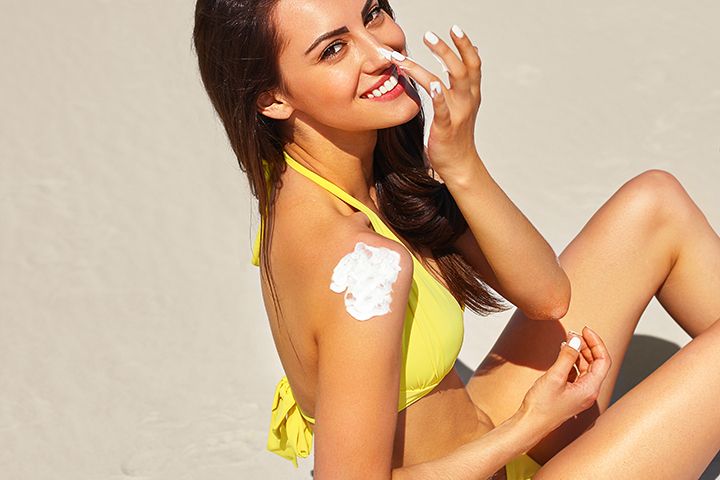By now, we all know the importance of sunscreen. Exposing yourself to UVA and UVB rays can really wreak havoc on your system and lead to a whole lot of health problems. However, there’s a myth floating around that if you have a deeper complexion, you don’t really need sunscreen. Unfortunately, that’s not completely true.
According to this 2007 study, white-skinned people are 70 times more likely to develop skin cancer than those with dark skin. This is largely due to the levels of melanin present, which work to scatter the UV rays and prevent their penetration into the epidermis. The same study concludes that a deeper-toned epidermis allows only 7.4% of UVB and 17.5% of UVA to penetrate, whilst 24% UVB and 55% UVA rays pass through lighter skin.

However, after being exposed to UV rays, the same melanin can react with your body’s DNA to cause mutations. A 2016 study in the Journal of the American Academy of Dermatology found that whilst there is a higher incidence of melanomas in lighter-skinned individuals, those with deeper skin tones have a lesser rate of survival.
Thus, it’s important for everyone to religiously apply sunscreen, irrespective of the colour of their skin. In addition to decreasing your chances of developing skin cancer, sunscreens can also prevent the occurrence of pigmentation and wrinkles.
Here’s what all you need to know before using sunscreen:
1. The Reality Of SPF
SPF stands for Sun Protection Factor. Contrary to popular belief however, SPF 30 does not provide double the protection that SPF 15 does. The latter blocks about 94% of the UV rays, whilst the former shields against 97%. In fact, even a product with SPF 100 can only block about 99% of the rays.
The American Academy of Dermatology suggests using a sunscreen with at least SPF 30. You should also take care to pick a broad-spectrum sunscreen i.e. one that protects against both, UVA and UVB rays. For maximum care, you should also use hats, sunglasses and protective clothing so that you can limit your exposure.
2. When You Should Be Applying It
Another common misconception is that you should only use sunscreen during summer. The truth of the matter is that up to 80% of UV radiation can penetrate light cloud cover and affect your skin. Factors like sand, snow and water increase your exposure to such rays as they reflect them.
In general, it is best to apply sunscreen 15 minutes before stepping out. Top up your application every 2 hours to stay protected. If you are swimming or living in a place with high humidity, you must reapply more frequently.
3. How You Should Use It
Most of us are guilty of using less sunscreen than we need. As a rule of thumb, use enough sunscreen to fill up a shot glass or about 1 ounce. Remember to cover all the parts of your body that are exposed – including the tips of your ears and the back of your neck. Your lips are also susceptible to sun damage so it’s best to use a balm that contains at least SPF 30 on them.
We understand that it is difficult to find a sunscreen that works for your skin tone. Many products available today leave a white or grey cast on deeper complexions and make them look ashy. Luckily, there are a few amazing products that can keep you safe, without leaving behind any residue. Here are a few of our favourites that you can try out:
Clinique SPF 50 Mineral Sunscreen Fluid For Face | Source: Clinique
La Roche-Posay Anthelios Clear Skin SPF 60 Sunscreen | Source: La Roche-Posay
Julep No Excuses Invisible Sunscreen Gel | Source: Julep
Hopefully, this guide will help clear up some myths and avoid any unnecessary harm to your precious skin! Let us know if you have any further queries on this topic by leaving a comment below.
P.S: Follow @missmalinifashion and @missmalinibeauty on Instagram for more updates.

